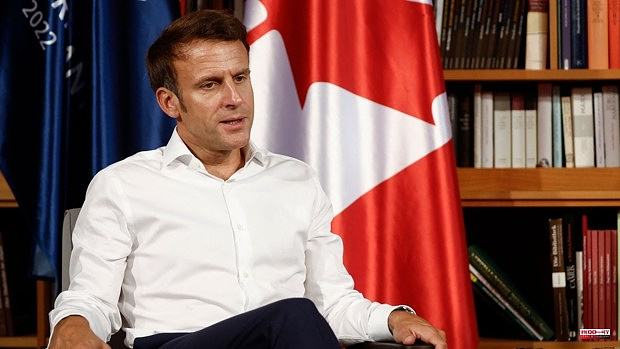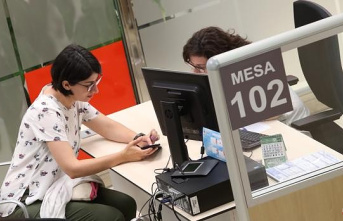France wants oil-producing countries to "exceptionally increase" their production, suggesting that Iran and Venezuela can "return" to the world market to curb price increases, facilitating a diversification of supplies from the countries most affected by the crisis. Ukraine war.
On the sidelines of the G7 summit, at the castle of Elmau, in the Bavarian Alps, Emmanuel Macron and the official spokesmen for the French government have leaked the national positions, in the process of consultation with the rest of the allies.
On an individual basis, Macron has begun a series of personal talks with the Crown Prince of Saudi Arabia, Mohamed bin Salman, and with the President of the United Arab Emirates (UAE), Mohamed bin Zayed, trying to negotiate possible increases in oil production in two strategic countries in the world market.
In their discussions, for days, Macron has spoken as president of France and acting president of the EU, aspiring to federate different sensitivities.
In the multilateral framework of the EU and the G7, an official spokesman for the Elysee, who prefers to remain anonymous, affirms that Macron defends three complementary points in the face of the world energy crisis derived from Russia's war against Ukraine: "Diversification of energy sources oil supply". "Including Iran and Venezuela in the new circuits of the world market." «Negotiating a ceiling on oil prices».
France's bilateral negotiation with Saudi Arabia and the UAE may have a certain effectiveness, in the case of the world's second largest arms producer and two major clients.
The negotiation of a “ceiling” (“price cap”) for petroleum products is a welcome initiative among the transatlantic allies. Without being sure of a positive response from the producing countries. The global control of oil prices poses immense problems of agreement between allies and producers. It is not evident that the producing countries easily "submit" to the urgent and immediate "demands" of the main dependent and consuming countries, where the rise in fuel prices threatens to become a growing problem.
The diversification of supply sources is a common strategic objective of all the allies, which continues to "come up against" complex realities that are difficult to solve in the short term.
The "reintroduction" of Iran and Venezuela in the world oil market collides with several underlying problems. Both countries are subject to US sanctions. And Washington reserves its own bilateral policy towards Tehran and Venezuela, which the production of nuclear energy in Iran particularly complicates.
In the opinion of Emmanuel Macron "the problem of negotiating the Iranian nuclear program is today practically closed". However, it is no secret that Washington continues to have serious suspicions about Tehran's possible complicity in financing Islamic terrorist groups. An issue of immense depth that can only be "settled" in Washington.












